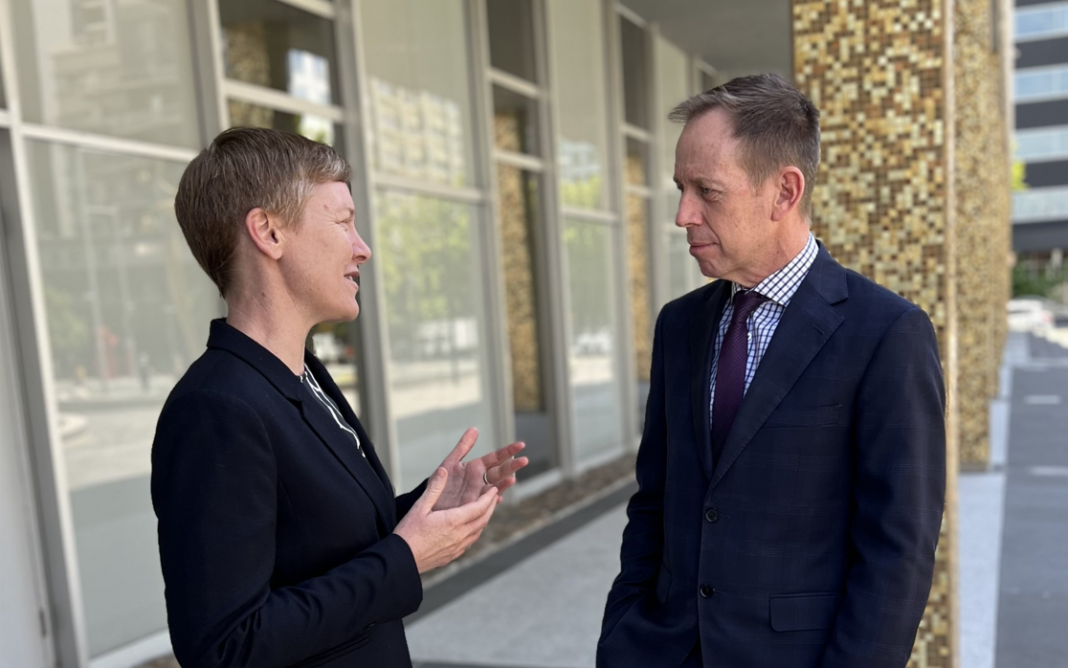Victim-survivors of domestic, family, and sexual violence who participated in restorative justice in the ACT felt safer, better supported, and more in control because of their involvement in the scheme, an Australian Institute of Criminology (AIC) evaluation of the ACT’s restorative justice scheme has found.
“This evaluation found restorative justice provides an important mechanism for persons harmed to seek redress in the aftermath of domestic and family violence and sexual violence victimisation, and for persons responsible to address the factors associated with their offending,” Siobhan Lawler, senior research analyst at the AIC, said.
The AIC review identifies that persons harmed were motivated to take part in restorative justice to confront the person responsible in a safe setting and have their experiences heard; encourage the person responsible to get help or give back to the community; try and make sure that the person responsible would not reoffend; or as an alternative to formal criminal proceedings.
“It found the scheme met justice needs identified by persons harmed, many of which fell outside the remit of the criminal justice system, such as increased feelings of safety and access to supports, feeling heard, regaining a sense of control, and an improved understanding of the crime,” Dr Lawler said.
The AIC report lists 10 recommendations addressing resourcing, further education, improving referral pathways, additional resources to increase capacity and shorten wait times, and developing formal disengagement processes. The ACT Government is considering these recommendations.
ACT Attorney-General Shane Rattenbury convened a Restorative Justice Roundtable on Tuesday, at which he welcomed the report.
Mr Rattenbury said the ACT has led the way in the provision of a restorative justice as an alternative pathway to the traditional criminal justice system since introducing its scheme nearly 20 years ago, and that he is committed to continual improvement of the scheme.
“Restorative justice enables individuals who have been affected by a crime to come together safely to acknowledge wrongdoing and the harm caused, and collectively resolve how to move forward,” Mr Rattenbury said.
In 2022-23, the Restorative Justice Unit received 135 referrals, and convened 47 conferences involving 59 victims and 53 offenders. Client feedback collected after these conferences indicated an overall satisfaction rate of 99 per cent. Over the same period, 38 Aboriginal and Torres Strait Islander offenders were referred to restorative justice. Seven conferences were held involving six young offenders and one adult.
Since the commencement of Phase Three, the RJU has received referrals for sexual offences involving 21 offenders, 22 victims and 37 sexual offences. The RJU has convened five conferences involving five offenders and six victims. Three agreements were formed after the conference, and in two cases, the conference itself satisfied the victims’ needs. The agreement compliance rate in sexual offending matters is 100 per cent.
In 2022-23, seven offenders were referred to the RJU for offences of a sexual nature. These referrals included 19 offences and seven victims. Two conferences have been convened resulting in one conference that satisfied the victim’s needs and one conference where there was a written agreement, which has already achieved full compliance. The overall agreement compliance rate for sexual offence matters since the commencement of Phase Three in 2018 is 100 per cent.
A referral may be ineligible for conferencing for a number of reasons, including due to the seriousness of the offence and the stage of the criminal justice system, the offender denying responsibility for the offence, or jurisdictional issues such as the offence being under Commonwealth legislation.
Serious domestic, family, and sexual violence matters (generally considered punishable by a term of imprisonment of more than 10 years), can only be referred after a plea or finding of guilt. Less serious domestic, family, and sexual violence offences (generally punishable by a term of imprisonment of 10 years or less), can be referred before a plea or finding of guilt, but only where exceptional circumstances exist (usually a dynamic assessment based on risk).
The Roundtable also discussed civil and restorative justice responses to sexual violence, in response to calls for increased accountability options in the Listen. Take action to prevent, believe and heal report; the upcoming review of the ACT Restorative Justice Scheme (due to report in mid to late-2024); and the proposed National Restorative Practice Conference to be held in Canberra in late November 2024.
Roundtable attendees included the Chief Justice, Chief Magistrate, Acting Director of Public Prosecutions, Victims of Crime Commissioner, academics from ANU and UC, representatives from the Canberra Restorative Community Network, and stakeholders from the justice and community services sectors and First Nations community.



